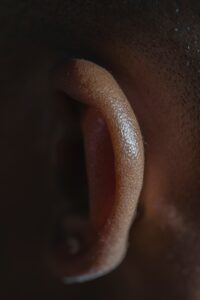Colds, Flu, Allergies And Your Ears
If you were aware of the dangers of colds, flu, allergies, and ear infections, it would be beneficial.
The Ear’s Constituents
The ears are incredible small “machines” with three sections in charge of hearing and balance. Diseases and allergies can all impact the outer, middle, and inner ear.
The term “external auditory system” refers to the outer region of the ear and the ear canal. With illness, it can become swollen or red.
The Eustachian tube, located in the middle ear, is the most usually infected location. This portion of the ear works similarly to a pressure release valve or drainage tube. When mucus clogs the tube, pressure rises, making hearing harder.
The inner ear, or labyrinth, is filled with fluid. It can also become infected, resulting in dizziness, ringing in the ears, or issues with balance.
Allergies, Infections, And Hearing Difficulties
After a few days of having a stuffy or runny nose, the middle ear lining gets irritated. This might result in a blockage of the Eustachian tube, which can cause ringing in the ears, a feeling of fullness, or congestion. This obstruction can occasionally cause conductive hearing loss, a temporary loss of hearing. When a cold or allergy has passed, it usually goes away on its own.
Illness-related congestion can also result in conductive hearing loss. This is also something that generally resolves itself. On the other hand, the flu can result in a more severe hearing problem known as sensorineural hearing loss.
Damage to the inner ear nerves, which transport sound signals to the brain, causes this. When the flu virus infects the inner ear, this occurs. Sensorineural hearing loss can be irreparable if not treated quickly, usually within two days. Diagnosis, however, is challenging. If you have the virus and suddenly lose your hearing, consult your doctor right once.
Medication For Colds And Allergies
Antihistamines and decongestants can help alleviate ear pressure and the sensation of fullness. Warm compresses may also be beneficial. When there is an infection, the doctor will give the patient an antibiotic. Ear pain can be alleviated by taking over-the-counter pain relievers.
The ear, nose, and throat are so intricately intertwined, issues in one area can occasionally lead to difficulties in the others. As a result, a stuffy nose and plugged ears are symptoms of a cold, flu, or allergy. Hearing loss is usually transient, but a visit to a hearing healthcare professional is required if issues persist.
This is why when you put something in your ear, you cough.
It is preferable to avoid putting anything in your ear. This also applies to cotton swabs, earwax removers, and ear candles, which can discharge earwax without entering the ear canal. Ear candles, on the other hand, do not have this limitation.
If you don’t want to risk hearing loss or a perforated eardrum, the American Academy of Otolaryngology recommends against putting anything smaller than your elbow in the ear canal. It’s anyone’s guess how to get anything more significant into the ear canal.
The involuntary cough reflex is a lesser-known side effect of introducing things into the ear. It was named after its initial describer, Friedrich Arnold, a 19th century German academic.
What’s The Relationship Between Coughing And The Ear Canal?
It’s all connected to the vagus nerve, which extends from the brain to the trunk and connects to the heart, lungs, and other organs along the way. It communicates with the auricle, regulates the larynx, and extends to the stomach and lower intestines. Like the word “vagabond,” its name originates from Latin and means “to roam around.”
The vagus nerve regulates the cough reflex and many other vital actions that allow us to live our lives, such as speaking, eating, breathing, and peeing.
The Arnold nerve, which extends into the ear canal, is critical for processing touch, when something enters your ear, whether a cotton swab or a stray cockroach, the Arnold nerve gets activated.
Surprisingly, this stimulation can also cause a cough. This is an example of a biological issue or problem. The brain becomes confused and misinterprets ear contact for something in the throat, prompting you to cough to remove the stimulus.
The Arnold nerve, which connects the ear canal to the brain and can convey touch sensations, is a nerve that can transmit touch sensations. Because the nerve is attached to a neuron that leads to the throat, the brain may become confused and interpret the feeling as something in the throat that needs to be coughed up.
This Also Works In The Opposite Direction.
“Similarly, a throat irritation, such as a viral ulcer or malignant tumour, might be misinterpreted as an earache because the glossopharyngeal nerve sends sensations back to the brain, but the brain doesn’t recognise where the sensation is coming from and misinterprets it as an earache,” Voigt explains.
“In those who have come to me with ear trouble, I’ve identified deep tongue base and laryngeal carcinoma.” Everything was normal when I examined the ear, then I used the laryngoscope to inspect the base of the tongue and throat and identified the malignancy there.”
Returning to the ear cough reflex. The amount of pressure required to elicit this response varies depending on the individual.
“Some people require deep, powerful pressure or contact to elicit the cough response, while others prefer mild touch stimulation,” Voigt explains.
Researchers studied this somewhat peculiar phenomenon in a 2017 study by tickling the external auditory canal with a cotton swab of adults and children with and without a chronic cough. The stimulation elicited Arnold’s ear cough reflex in 25% of adults and 3% of children with a persistent cough. In comparison, only 2% of adults and children did not have a chronic cough.
Although Arnold’s ear cough reflex is possible, it does not occur commonly in those who do not have a chronic cough, according to the findings of this study. The researchers believe it is a vagus nerve hypersensitivity reaction (Cough Hypersensitivity Syndrome, CHS) induced by a viral respiratory disease or environmental factors.
This is a relatively uncommon cause of chronic cough. In many cases, however, there is growing evidence that both chronic and idiopathic cough are connected with vagus nerve injury. Cough, for example, is a common adverse effect of vagus nerve stimulation, which is used to treat epilepsy. Furthermore, there is evidence that the tone and rhythm of the cough can differ depending on the damage location.
All of this demonstrates how the body is linked in unexpected ways. So much so that (for some) a minor ear incident might cause coughing fits.
Brought To You By – Ear Wax Removal Tamworth
The post Colds, Flu, Allergies And Your Ears appeared first on https://gqcentral.co.uk

